Coming up with great gift ideas for the holiday season is not always easy…especially when trying to find something for those friends and family who already have EVERYTHING. Why not consider something that will “brighten” their smile? Here at our dental office, we have a few gift items that are always big hits with our patients. [Read more…]

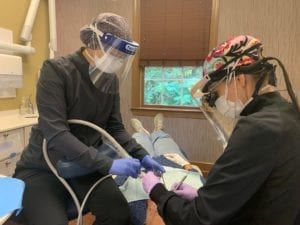 As we all do our best to prevent exposing ourselves to the coronavirus by isolating at home or by protecting ourselves with masks, hand sanitizer, and maintaining six foot distances as we venture out, we also need to be mindful of keeping our bodies healthy so that our immune system can be ready in case it is confronted with this virus. Did you know that there is a direct link between your oral wellness and your overall health? We have all heard that people with certain risk factors like obesity, diabetes, and cardiovascular problems are more likely to have complications if they contract COVID-19. Maintaining good oral hygiene and ensuring that we have regular dental examinations and cleanings is important in helping to ensure that our immune system is functioning at full capacity and is not already overwhelmed fighting off oral bacteria when it is confronted with coronavirus particles.
As we all do our best to prevent exposing ourselves to the coronavirus by isolating at home or by protecting ourselves with masks, hand sanitizer, and maintaining six foot distances as we venture out, we also need to be mindful of keeping our bodies healthy so that our immune system can be ready in case it is confronted with this virus. Did you know that there is a direct link between your oral wellness and your overall health? We have all heard that people with certain risk factors like obesity, diabetes, and cardiovascular problems are more likely to have complications if they contract COVID-19. Maintaining good oral hygiene and ensuring that we have regular dental examinations and cleanings is important in helping to ensure that our immune system is functioning at full capacity and is not already overwhelmed fighting off oral bacteria when it is confronted with coronavirus particles. 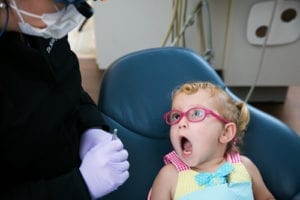 now that the most common chronic disease found in school-age children is tooth decay (or cavities)? While brushing twice a day and flossing daily are the best ways to prevent cavities, dental sealants are another preventative tool that can help reduce the risk of children developing cavities. Dental sealants are a protective barrier placed on the chewing surfaces of teeth that help to seal out plaque and acids from the deep pits and grooves of teeth, preventing them from forming cavities. In an October 2016 report released by the Centers for Disease Control (CDC), the importance of sealants for school-age children was affirmed when they found that “school-age children without sealants have almost three times more cavities than children with sealants.” More recent studies have found that sealants reduce the risk of developing cavities on molars by nearly 80%.
now that the most common chronic disease found in school-age children is tooth decay (or cavities)? While brushing twice a day and flossing daily are the best ways to prevent cavities, dental sealants are another preventative tool that can help reduce the risk of children developing cavities. Dental sealants are a protective barrier placed on the chewing surfaces of teeth that help to seal out plaque and acids from the deep pits and grooves of teeth, preventing them from forming cavities. In an October 2016 report released by the Centers for Disease Control (CDC), the importance of sealants for school-age children was affirmed when they found that “school-age children without sealants have almost three times more cavities than children with sealants.” More recent studies have found that sealants reduce the risk of developing cavities on molars by nearly 80%. 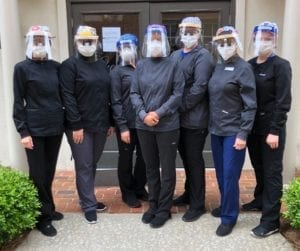 etime have we experienced such a worldwide health crisis as we are currently. Protecting the health of ourselves, our families, and our community members has become a major group effort! Wearing masks, frequent hand washing, and sanitizer use is now the norm for everyone. Infection control has always been a top priority for us at Cheek Dental, but COVID-19 has certainly put our procedures to the test!
etime have we experienced such a worldwide health crisis as we are currently. Protecting the health of ourselves, our families, and our community members has become a major group effort! Wearing masks, frequent hand washing, and sanitizer use is now the norm for everyone. Infection control has always been a top priority for us at Cheek Dental, but COVID-19 has certainly put our procedures to the test! 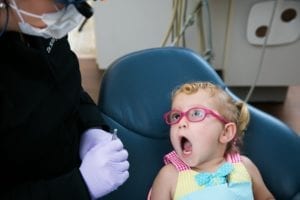
 When we think of October, many of us think of Halloween. Children dressing up in costumes, trick or treating, and, of course, the Halloween candy! But there is more to celebrate in October than just Halloween. It is also National Dental Hygiene Month! So to help you make it through Halloween with healthy teeth and good oral hygiene, here are our five favorite tips:
When we think of October, many of us think of Halloween. Children dressing up in costumes, trick or treating, and, of course, the Halloween candy! But there is more to celebrate in October than just Halloween. It is also National Dental Hygiene Month! So to help you make it through Halloween with healthy teeth and good oral hygiene, here are our five favorite tips: 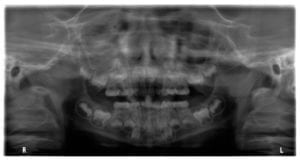 As a mom of three, I feel the weight of responsibility to stay informed and protect my children from toxins and chemicals that may harm their developing bodies. Radiation is one of those toxins that concerns many people. Most dentists agree that limiting exposure to X-rays is important, but X-rays are necessary to find dental problems that can also be dangerous to the body. Your health suffers when people miss dental or other medical issues because they never took a radiograph. X-rays can help your dentist find and treat dental problems at an early stage, saving time, money and unnecessary discomfort. In our practice, each patient is evaluated individually for how often and how many x-rays are needed.
As a mom of three, I feel the weight of responsibility to stay informed and protect my children from toxins and chemicals that may harm their developing bodies. Radiation is one of those toxins that concerns many people. Most dentists agree that limiting exposure to X-rays is important, but X-rays are necessary to find dental problems that can also be dangerous to the body. Your health suffers when people miss dental or other medical issues because they never took a radiograph. X-rays can help your dentist find and treat dental problems at an early stage, saving time, money and unnecessary discomfort. In our practice, each patient is evaluated individually for how often and how many x-rays are needed.  Hormones can affect many aspects of a woman’s health – their weight, their mood, and even their dental health. You may be surprised to learn that women are more susceptible to gum disease during periods of hormone surges such as puberty, menstruation, and pregnancy. While changing hormones are a fact of life, being aware of how hormones affect our oral health can help us manage and prevent their impact.
Hormones can affect many aspects of a woman’s health – their weight, their mood, and even their dental health. You may be surprised to learn that women are more susceptible to gum disease during periods of hormone surges such as puberty, menstruation, and pregnancy. While changing hormones are a fact of life, being aware of how hormones affect our oral health can help us manage and prevent their impact.  hen trying to find healthcare providers like pediatricians and dentists. But how do you really know if a dentist is “good?” Do you seek the opinions of neighbors and co-workers? Co-workers and neighbors can be good resources for recommending a dentist based on the dentist’s personality, gentleness, and appearance of the office, but may not always know if the work being done is of high quality. However, word-of-mouth recommendations are a good place to start. Reading online reviews next to be sure that others have the same great experience is important as well.
hen trying to find healthcare providers like pediatricians and dentists. But how do you really know if a dentist is “good?” Do you seek the opinions of neighbors and co-workers? Co-workers and neighbors can be good resources for recommending a dentist based on the dentist’s personality, gentleness, and appearance of the office, but may not always know if the work being done is of high quality. However, word-of-mouth recommendations are a good place to start. Reading online reviews next to be sure that others have the same great experience is important as well.